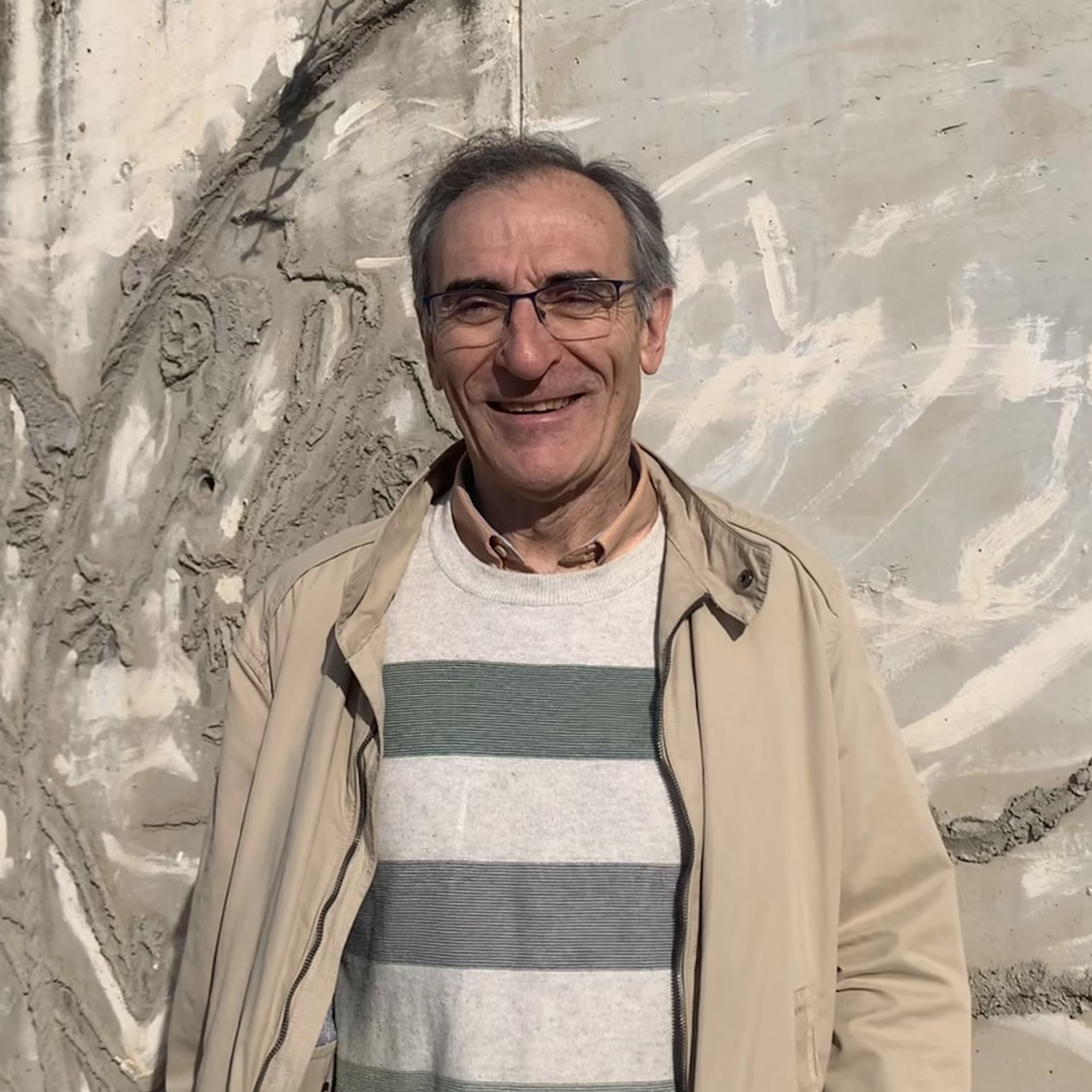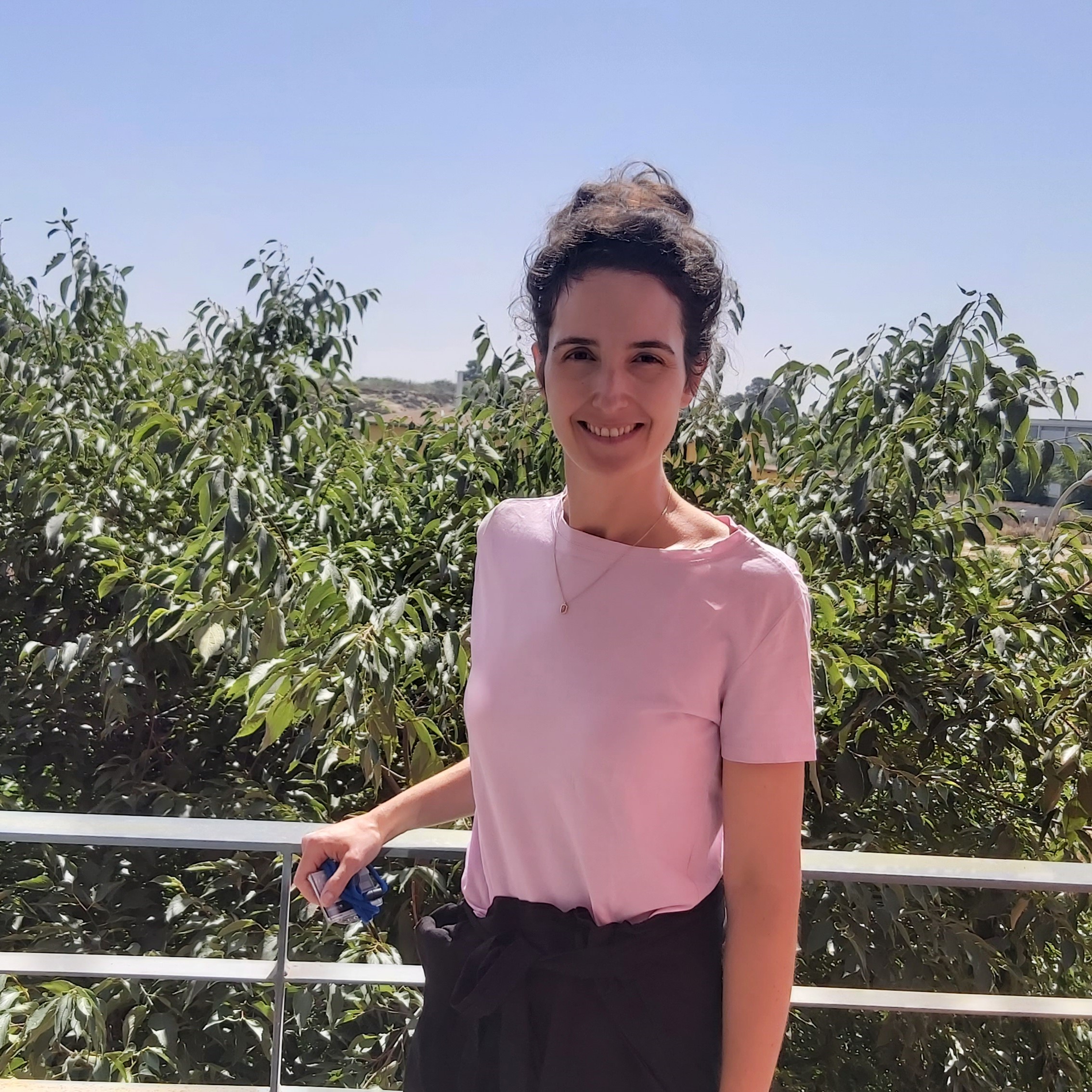
Why did you decide to go into research?
The decision to go into research came about somewhat by chance. During my degree, I was not very aware of what research was. It was in my final year when a colleague, who is now also a lecturer at the School, mentioned that he was going to apply for a research grant. Having no previous knowledge of what that was, I did more research, and then I got curious and applied for a scholarship, which marked my entry into the world of research.
So it was not always clear to him what he wanted to do for a living.
At that time, I decided to explore the world of research, because I was not familiar with it. The beginnings were difficult, you think you are going to be told how to do things and it is usually not like that, you realise that it requires a lot of personal effort and trial-and-error work with no certainty or control of the results.
Then you feel overwhelmed when faced with complex concepts and the need to come up with new ideas. It is a long-distance race, but when the results come, that is when you start to feel more comfortable, and it is comforting. I would say that the idea that I could make research my profession came in the second part of my doctoral thesis, when I could see that I enjoyed creating and solving practical problems.
How long have you been linked to the I3A and what has been the path to becoming director of the Institute?
I have been associated with the I3A since its creation. At that time, I was already a professor and joined the Institute from the beginning. The person who headed the Biomedical Engineering division at that time, Armando Roy, had to take on other responsibilities and Manuel Doblaré, the first director of the I3A, invited me to participate in the coordination of that division. Being at the helm gave me a better understanding of how the Institute works and its potential to generate added value. As a researcher, unless you are curious, as I am, you cannot see exactly how things work. When Ignacio Garcés' term of office came to an end, various circumstances led me to run for director and I have been at the helm of the Institute for four years.
The most rewarding part of management is seeing initiatives materialise and bear fruit.
What aspects of running the Institute did you find most rewarding and what aspects did you find most challenging?
The most rewarding part of management is seeing initiatives materialise and bear fruit. In any professional and personal environment, it is always satisfying to see things moving forward. However, management involves processes that are often slow, and often the results of the actions that are put in place are reflected in future directions. For example, we set up an infrastructure that gave a very important boost to the cluster, and this was an action that was initiated by the previous management. The most satisfying thing is when researchers get involved and are willing to collaborate and participate in new initiatives.
What I like least is the bureaucratic burden associated with management. Any action to be carried out requires facing a large number of restrictions, which sometimes discourages. In addition to a shortage of resources, initiatives often encounter a series of obstacles and administrative reluctance that make them excessively costly. Changing the status quo is always a considerable challenge.
Any moment you would like to highlight from these four years as director of the I3A?
It is difficult for me to single out one specific action, as each has its own value in its own context. To mention just one of them, the grants awarded to students is an initiative that we consider important in terms of involving young people, the future, in research and the Institute, even if it is gradual in its implementation and has long-term results. In addition, the Impulso programmes, the Institute's communication and support for European projects are actions that I hope will have a significant impact in the medium term. Work has also been done to improve the cluster and efforts have been made in project management. In short, it has been a joint effort in many areas.
What is your vision for the future of the I3A and what challenges do you think it faces in the coming years?
As I see the university, research has to take on a much more prominent role than it does at present. Universities must evolve towards a model in which research is the main driver, and from there spread towards more innovative teaching. While teaching remains the fundamental key to the university, it is the institutions that prioritise research that tend to have a greater impact on society and attract talent that feeds back into the institution. So, I would like the University of Zaragoza to evolve along these lines as much as possible, and I think the Institutes are the right tool for this transformation. In the context of technology, I would like the I3A to be, and I believe it will be, the University's reference for technological creation and innovation for society.
I would like the I3A to be, and I believe it will be, the reference for technological creation and innovation from the University to society.
In your group, BSICoS, what are the main lines of research?
We focus on applying information and communication technologies (ICT) in the field of health and medicine. While much of our work has focused on cardiology, we also explore other areas such as sleep. Since its inception, BSICoS has evolved from processing electrocardiogram signals to a more holistic understanding of cardiac electrophysiology from the cellular level, through the tissue, organ and whole body. In addition, we envision a future where we can develop a physiological digital twin, allowing us to simulate the functioning of the heart in a personalised way. This would help us to design specific therapies and prevent risks for each individual.
Any project you would like to highlight
I would highlight a project that fuses experience in the field of communications, automation and physiology, resulting in a system for monitoring the action of the autonomic nervous system. This system makes it possible to monitor the control that the organism carries out autonomously in functions such as breathing, heart rate, or their interactions, and is useful for detecting stress situations, asthmatic crises and other pathologies that degrade the autonomic nervous system.
I am very pleased with my contribution to a teaching book on bioelectrical signal processing for teaching in engineering degrees. This project interrelates the scientific-technological methods of engineering with a substrate based on physiological knowledge, encouraging collaboration and integrated understanding between disciplines.
How do you envisage the future of your research area, and are there any challenges that you find particularly interesting?
The future is shaping up towards the development of physiological or functional digital twins, it presents great potential. The evolution of Artificial Intelligence is also an intriguing challenge, I am very curious to see how it can contribute significantly in the area. In addition, the study of the brain and the nervous system remains a great and very appealing challenge, it is still a great unknown, but new doors are already opening to try to understand it.
What do you enjoy most about your profession?
What I enjoy most is the constant learning and creating. For me, learning is a great experience, and finding solutions to problems that can have a positive social impact is very satisfying. Seeing the personal and professional growth of the students, from when they arrive more or less confused, seeing them mature, is also very rewarding.
What would you say to anyone thinking of going into research?
CLOSE UP…
What did you study: Degree in Physics and PhD in Biomedical Engineering
A dream to fulfill: I'm not much of a dreamer, I like the road more than the goal, I want to enjoy it wherever it takes me.
A trip: Kenya and the glaciers of Argentina are etched in my mind, and the Amazon or Iceland are two I would like to do.
Hobbies: I love being in contact with nature, walking, I also love handicrafts, travelling and a good chat.
A book: Homeland or I'll come back for you
A film: Oppenheimer or In the society of the snow
Musical group: Simon and Garfunkel or ABBA
How would you define yourself: Curious and empathetic.
